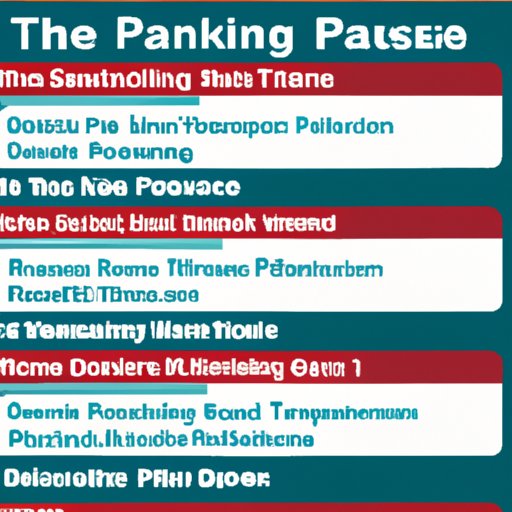Introduction
Time management is a skill that helps you use your time more effectively by organizing and planning how you spend the hours in your day. It’s an essential ability that can have a huge impact on your success and happiness. Whether you’re at home or in the workplace, managing your time well can help reduce stress, increase productivity, and improve overall quality of life.
Definition of Time Management
Time management is the process of organizing and planning how to divide your time between specific activities. Good time management enables you to work smarter – not harder – so that you get more done in less time, even when time is tight and pressures are high. Failing to manage your time damages your effectiveness and causes stress.
Benefits of Time Management
Time management has many benefits. It can help you become organized and productive, make better decisions, reduce stress, and achieve goals. According to a study published in the International Journal of Stress Management, “Time management is a major factor in reducing stress, leading to improved physical health, mental well-being, and overall satisfaction with life.”
Popular Time Management Strategies
There are several popular time management strategies that you can use to maximize your productivity and efficiency. Here are four of the most common:
Creating To-Do Lists
Creating to-do lists is one of the simplest and most effective time management strategies. Writing down tasks and goals helps you prioritize and stay focused on what needs to be done. You can create daily, weekly, or monthly lists. Start by writing down all the tasks and goals you need to accomplish, then prioritize them from most important to least important.
Prioritizing Tasks
Once you’ve created your to-do list, it’s important to prioritize tasks. Focus on the most important tasks first and don’t waste time on activities that won’t move you closer to your goals. If you find yourself struggling to focus, try breaking down big tasks into smaller, more manageable chunks.
Scheduling and Planning
Scheduling and planning are key components of time management. When creating your schedule, consider what tasks need to be done and when they need to be completed. Schedule time for breaks and leisure activities, and leave room for unexpected tasks or changes. Planning ahead will help you stay organized and on top of your workload.
Setting Deadlines
Deadlines are an important tool for staying on track and meeting goals. By setting deadlines for yourself, you’ll have a clear timeline for when tasks need to be completed. This will help you stay focused and motivated to finish projects in a timely manner.
Different Time Management Styles
There are several different time management styles that you can use to organize and plan your time. Here are three of the most popular:
The Eisenhower Matrix
The Eisenhower Matrix is a time management technique developed by former U.S. President Dwight D. Eisenhower. It involves sorting tasks into four quadrants based on their importance and urgency. Quadrant 1 is for important and urgent tasks. Quadrant 2 is for important but non-urgent tasks. Quadrant 3 is for non-important but urgent tasks. And Quadrant 4 is for non-important and non-urgent tasks.
The Pomodoro Technique
The Pomodoro Technique is a popular time management method developed by Francesco Cirillo in the late 1980s. It involves taking short, frequent breaks throughout the day to keep your mind fresh and help you stay focused. The idea is to work in 25-minute intervals, followed by 5-minute breaks. After four intervals, take a longer break of 15 to 30 minutes.
The Parkinson’s Law
The Parkinson’s Law is named after British naval historian Cyril Northcote Parkinson. It states that “work expands so as to fill the time available for its completion.” In other words, if you give yourself more time to complete a task, you’ll likely take longer to finish it. This law emphasizes the importance of setting realistic deadlines and avoiding procrastination.
Dispelling Common Myths about Time Management
Despite its importance, there are many misconceptions about time management. Here are three common myths, and why they’re wrong:
Myth: You Can Do Everything
Many people think that if they just manage their time better, they can do everything. But this simply isn’t true. You can’t do everything, and it’s important to accept that. Prioritize the tasks that are most important and delegate or outsource the rest.
Myth: Multitasking is the Best Way to Increase Productivity
Multitasking may seem like an efficient way to get things done, but research shows that it actually decreases productivity and increases stress. Instead of trying to do multiple tasks at once, focus on one task at a time until it’s done. This will help you stay focused and get more done in less time.
Myth: Taking a Break is Unproductive
Taking breaks is actually essential for productivity. Research shows that taking regular breaks can help boost energy levels, improve concentration, and reduce stress. Breaks also give you time to reflect and recharge, which can help you come back to work feeling refreshed and ready to tackle the next task.

Tips for Effective Time Management
Time management is a skill that takes practice to master. Here are five tips for improving your time management skills:
Set Realistic Goals
It’s important to set realistic goals. Don’t overload yourself with too many tasks, and give yourself enough time to complete each task. Aim to set goals that are achievable and don’t put too much pressure on yourself.
Minimize Distractions
Distractions are a major time waster. Turn off notifications, limit social media usage, and remove any other distractions that might prevent you from focusing on your tasks.
Stay Focused
Staying focused is key to effective time management. Break down tasks into small steps and concentrate on one thing at a time. Avoid multitasking, and if you find yourself losing focus, take a short break before returning to your work.
Take Breaks
Taking regular breaks is essential for staying productive. Take a few minutes every hour to stretch, walk around, or grab a snack. This will help you stay energized and focused throughout the day.
Reward Yourself
Rewarding yourself is a great way to stay motivated and stay on track. Set up a reward system for yourself, and give yourself a treat when you complete a task or reach a milestone.
Conclusion
Time management is a valuable skill that can help you become more organized, productive, and successful. By following the strategies and tips outlined in this article, you can learn how to manage your time more effectively and reap the rewards of increased productivity and reduced stress.
(Note: Is this article not meeting your expectations? Do you have knowledge or insights to share? Unlock new opportunities and expand your reach by joining our authors team. Click Registration to join us and share your expertise with our readers.)
